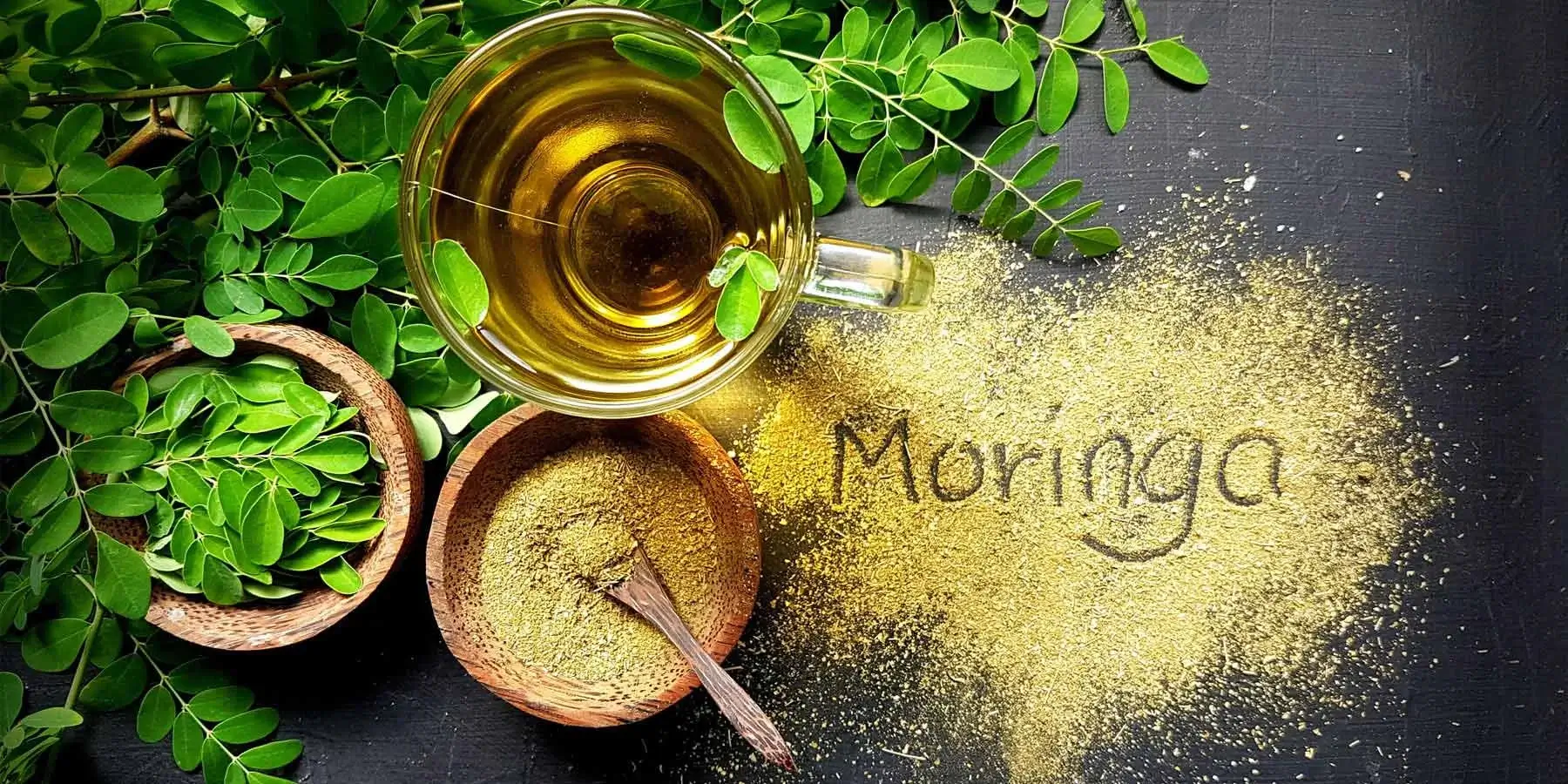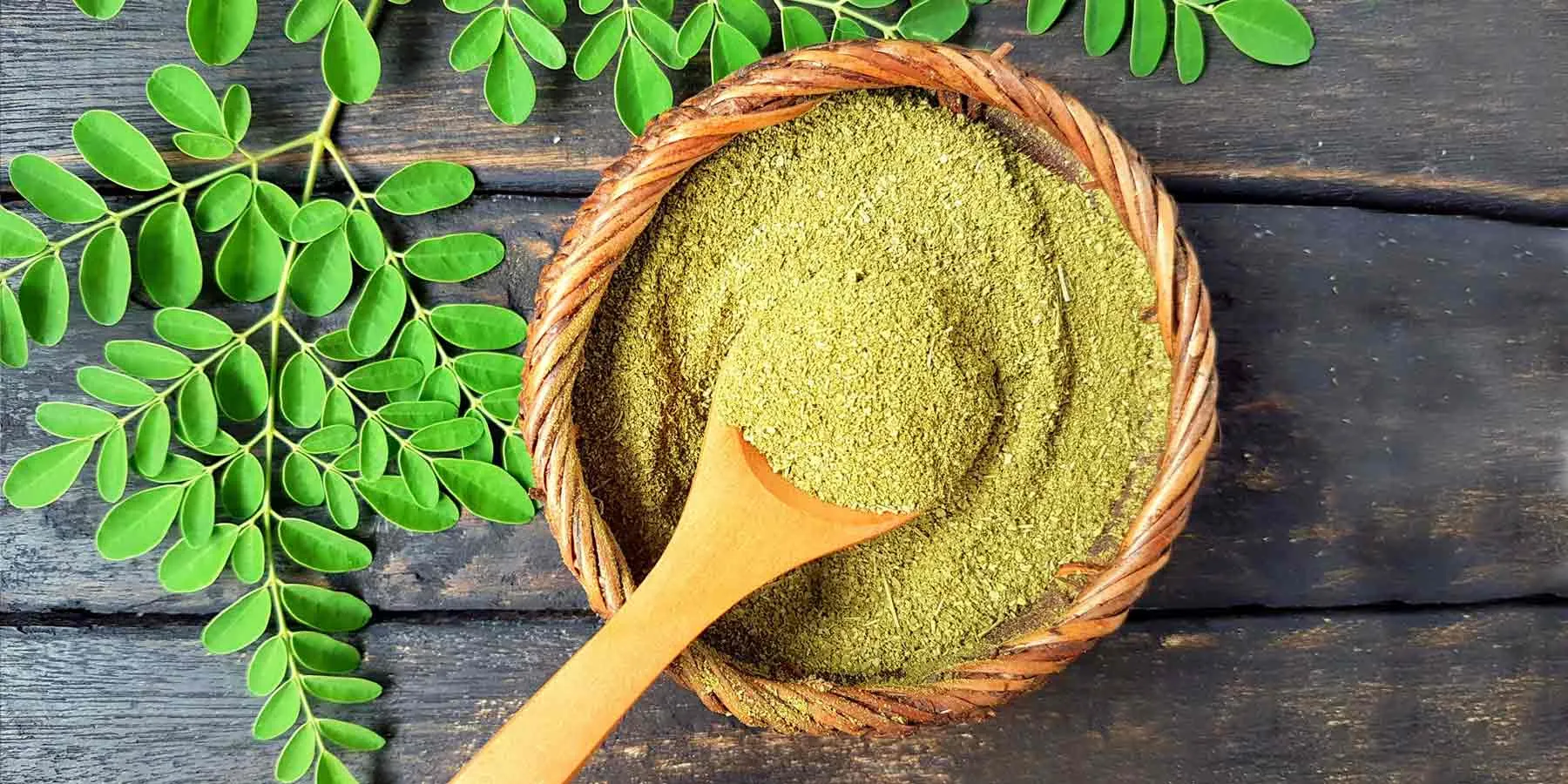Benefits and Uses of Moringa

Moringa is a plant that was initially discovered for its beneficial properties thousands of years ago, only recently has moringa (sometimes called the Ben oil tree or the Tree of Life) become known as one of the most impressive herbal supplements.
In fact, in 2008 the National Institute of Health called moringa (moringa oleifera) the “plant of the year,” acknowledging that “perhaps like no other single species, this plant has the potential to help reverse multiple major environmental problems and provide for many unmet human needs.”
More than 1,300 studies, articles and reports have focused on moringa benefits and this plant’s healing abilities that are important in parts of the world that are especially susceptible to disease outbreak and nutritional deficiencies. Research shows that just about every part of the moringa plant can be utilized in other ways, whether it’s to make a potent antioxidant tea, or produce an oily substance that lubricates and nourishes the skin. Throughout the world, moringa is used for treating such widespread conditions as:
- Inflammation-related diseases
- Cancer
- Diabetes
- Anemia
- Arthritis and other joint pain, such as rheumatism
- Allergies and asthma
- Constipation, stomach pains and diarrhea
- Epilepsy
- Stomach and intestinal ulcers or spasms
- Chronic headaches
- Heart problems, including high blood pressure
- Kidney stones
- Fluid retention
- Thyroid disorders
- Low sex drive
- Bacterial, fungal, viral and parasitic infections
Moringa is an excellent source of protein, vitamin A, potassium, calcium and vitamin C. Moringa is quite the powerhouse! According to Kuli Kuli, an organization that harvests moringa plants in Africa and makes them accessible to customers in the U.S. and other western nations, gram for gram, moringa contains:
- Two times the amount of protein of yogurt
- Four times the amount of vitamin A as carrots
- Three times the amount of potassium as bananas
- Four times the amount of calcium as cows’ milk
- Seven times the amount of vitamin C as oranges
Proven Moringa Benefits:
Moringa is known by over 100 names in different languages around the world. This easy-to-grow tropical plant species, native to the Himalayan Mountains and parts of India and Africa, comes packed with over 90 protective compounds, including isothiocyanates, flavonoidsand phenolic acids.
Moringa has gained a reputation for fighting inflammation and combating various effects of malnutrition and aging, earning the nickname “the miracle plant.” Here are the top six proven moringa benefits to show that nickname is well deserved.
1. Provides Antioxidants and Anti-Inflammatory Compounds
One of the reasons that the many health benefits of herbal plants like Moringa oleifera are so impressive is because they contain similar abilities to conventional drugs; only they don’t pose the same level of risk for experiencing side effects. According to a report published in the Asian Pacific Journal of Cancer Prevention, moringa contains a mix of essential amino acids(the building blocks of proteins),caarotenoid phytonutrients (the same kinds found in plants like carrots and tomatoes), antioxidants such as quercetin, and natural antibacterial compounds that work in the same way as many anti-inflammatory drugs.
Moringa leaves are high in several anti-aging compounds that lower the effects of oxidative stressand inflammation, including polyphenols, vitamin C, beta-carotene, quercetin, and chlorogenic acid. These are associated with a reduced risk for chronic diseases, such as stomach, lung or colon cancer, diabetes, hypertension, and age-related eye disorders.
2. Balances Hormones and Slows the Effects of Aging
A 2014 study published in the Journal of Food Science and Technology tested the effects of moringa (sometimes also called “drumstick”) along with amaranth leaves (Amaranthus tricolor) on levels of inflammation and oxidative stress in menopausal adult women. Knowing that levels of valuable antioxidant enzymes get affected during the postmenopausal period due to deficiency of “youthful” hormones, including estrogen, researchers wanted to investigate if these super foods could help slow the effects of aging using natural herbal antioxidants that balance hormones naturally.
Ninety postmenopausal women between the ages of 45–60 years were selected and divided into three groups given various levels of the supplements. Levels of antioxidant status, including serum retinol,serum ascorbic acid,glutathione peroxidase, superoxide dismutaseand malondialdehyde were analyzed before and after supplementation, along with fasting blood glucose and hemoglobin levels. Results showed that supplementing with moringa and amaranth caused significant increases in antioxidant status along with significant decreases in markers of oxidative stress.
Better fasting blood glucose control and positive increases in hemoglobin were also found, which led the researchers to conclude that these plants have therapeutic potential for helping to prevent complications due to aging and natural hormonal changes. Moringa also benefits the libido and might work like a natural birth control compound, according to some studies.
Although it’s been used as a natural aphrodisiac to increase sex drive and performance for thousands of years, it seems to help reduce rates of conception. With that in mind, it can boost the immune system during pregnancy and also increase breast milk production/lactation, according to some studies.
3. Helps Improve Digestive Health
Due to its anti-inflammatory properties, moringa has been used in ancient systems of medicine such as Ayurveda to prevent or treat stomach ulcers, liver disease, kidney damage, fungal or yeast infections (such as Candida), digestive complaints, and infections.
A common use of moringa oil is to help boost liver function and therefore detoxify the body of harmful substances, such as heavy metal toxins. It might also be able to help fight kidney stones, urinary tract infections, constipation, fluid retention/edema and diarrhea.
4. Balances Blood Sugar Levels, Helping Fight Diabetes
Moringa contains a type of acid called chlorogenic acid, which has been shown to help control blood sugar levels and allow cells to take up or release glucose (sugar) as needed. This gives moringa natural ant diabetic and hormone-balancing properties. Aside from chloregnic acid, compounds called isothiocyanates that are present in moringa have also been linked to natural protection against diabetes.
A study that appeared in the International Journal of Food Science Technology found that moringa had positive effects on blood glucose control and insulin levels in patients with diabetes when eaten as part of a high-carbohydrate meal. The effects of three different plants (moringa, curry and bittergourd) were tested in response to eating meals containing various levels of glucose. The results showed that plasma insulin responses were significantly lower when the three plants were included in the meal compared to when they weren’t, with all three plants having similar effects.
Separate studies conducted by the Biotechnology Institute at Sadat City University in Egypt have found that ant diabetic activities of low doses of moringa seed powder (50–100 milligrams per kilogram body weight) help increase antioxidant status and enzyme production within the liver, pancreas and kidneys of rats and prevent damage compared to control groups.
High levels of immunoglobulin (IgA, IgG),fasting blood sugar and glycosylated hemoglobin (HbA1c) — three markers seen in diabetics — were also found to decrease as a result of moringa given to rats with diabetes. Results from the study showed that overall, compared to rats not given the herbal treatment, those receiving moringa experienced a return to both kidney and pancreatic health as well as reduced complications of diabetes.
5. Protects and Nourishes the Skin
Moringa contains natural antibacterial, antifungal and antiviral compounds that protect the skin from various forms of infections. Some of the common ways moringa is used on the skin include: reducing athlete’s foot, eliminating odors, reducing inflammation associated with acne breakouts, treating pockets of infection or abscesses, getting rid of dandruff, fighting gum disease (gingivitis), and helping heal bites, burns, viral warts and wounds.
Moringa oil is applied directly to the skin as a drying, astringent agent used to kill bacteria, but at the same time when used regularly it’s known to act like a lubricant and hydrate the skin by restoring its natural moisture barrier. It’s a common ingredient used in food manufacturing and perfumes because it prevents spoilage by killing bacteria, plus it has a pleasant smell and reduces odors.
6. Helps Stabilize Your Mood and Protects Brain Health
As a high protein food and a rich source of the amino acid tryptophan, moringa benefits neurotransmitter functions, including those that produce the “feel good” hormone serotonin.
Moringa is also rich in antioxidants and compounds that improve thyroid health, which makes it beneficial for maintaining high energy levels plus fighting fatigue, depression, low libido, moods swings and insomnia.
Nutrition Facts: Moringa

Moringa is a unique plant because almost all parts of it — leaves, seeds, flowers/pods, stem and roots — can be used as a source for nutrition and its other medicinal properties that fight free radical damage. The most popular medicinal use of moringa, both traditionally and today, involves drying and grinding down the tree’s antioxidant-packed leaves to unlock the most moringa benefits.
Moringa leaves are loaded with numerous nutrients, including antioxidants, protein, calcium, beta-carotene, vitamin C and potassium. Because it provides a concentrated source of vitamin A, moringa is given to thousands of children in third-world countries every year suffering from life-threatening vitamin A deficiency, which is linked to impaired immune function.
With an exceptionally high nutritional value, moringa can be used to obtain important trace minerals, protein and phenolics. The plant contains a rare and unique combination of disease preventing phytonutrients, including: zeatin, quercetin, beta-sitosterol, caffeoylquinic acid and kaempferol — proven anti-inflammatories with strong medicinal values. Numerous studies have shown that these compounds are protective of the heart, natural circulatory stimulants, and possess antitumor, anti-epileptic, anti-ulcer, antispasmodic, antihypertensive and antidiabetic effects.
To take advantage of this, moringa leaves are used to brew tea by steeping the dried, preserved leaves in hot water, which releases their special chemical compounds — very similarly to how green tea is made. Dried moringa leaves are also ground to create a long-lasting powder, or potent extracts are taken from the leaves to be used in the formation of concentrated moringa capsule supplements.
Aside from the valuable leaves, the pods of the moringa tree also contain seeds that hold a healing type of oil. Oil from moringa seeds can be used to cook with or put directly onto the surface of the body. Several popular uses of moringa oil are to help retain skin’s moisture, speed up wound healing, and soothe dry or burnt skin.
Another interesting use of the seeds is for water purification. Combining moringa seeds with water helps impurities cling to the seeds so they can be removed, leaving behind better quality water that’s lower in toxins. Salt also seems to bind to moringa, which is beneficial for producing fresh-tasting water. Some studies have shown that 0.2 grams of ground moringa seed can turn one liter of contaminated water into safe drinking water due to the coagulating actions of certain ingredients in the seeds that absorb bacteria, adding water purification to the list of moringa benefits.
Moringa can be used in many different ways in order to utilize all the available moringa benefits. Because of the long transport time needed to ship moringa from parts of Africa, Asia or India where it’s grown, in the U.S. it’s usually sold in powder or capsule form, which prolongs its shelf life.
- It might not have the most appealing flavor (a cross somewhere between horseradish and asparagus), but it’s a supplement with one of the richest supplies of vital nutrients in the world, which makes the off-putting taste worth it. There’s no recommended or required dosage of moringa at this time since it’s only an herbal supplement and not an essential nutrient. The most common forms of moringa are drive moringa leaves or powder, moringa tea, moringa seeds, and moringa oil.
References: